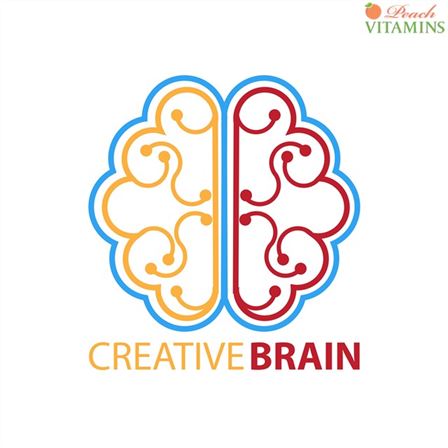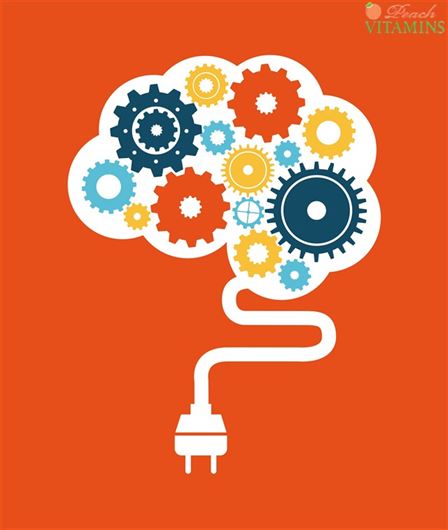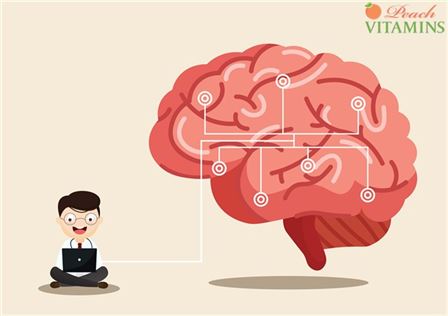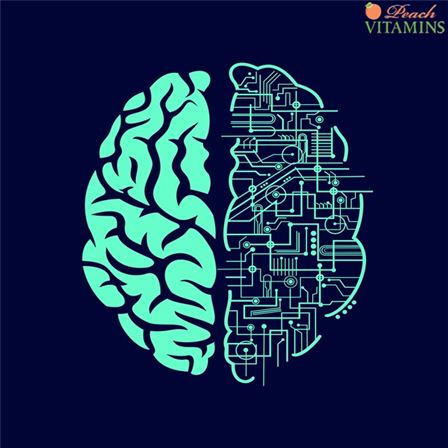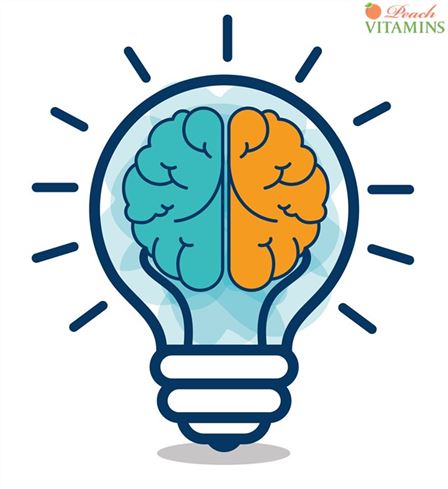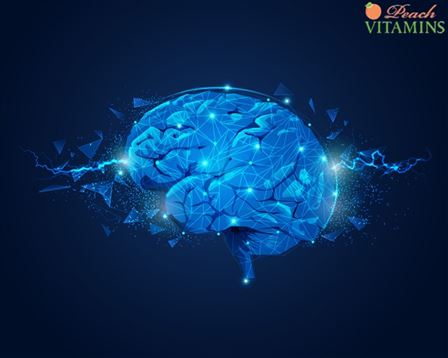What is Ginkgo Biloba good for? Ginkgo biloba is an herb that has been used for thousands of years. It is known to improve brain function and boost blood circulation. It also helps prevent dementia and Alzheimer’s disease.
There are two main types of Ginkgo Biloba: Standardized extract and pure ginkgo Biloba leaf extract. The standardized extract is usually tablet form, while the pure Ginkgo Biloba leaf extract is generally liquid.
But there is another type of ginkgo Biloba that is gaining popularity: Ginkgo biloba extract capsules. These are often sold as dietary supplements. They contain only Ginkgo Biloba extract.
What Does Ginkgo Biloba Do?
Ginkgo Biloba helps the brain by improving blood flow in areas where it needs help most. It does this by increasing levels of chemicals called neurotransmitters responsible for transmitting messages between nerve cells.
These neurotransmitter levels can become depleted when we age. By boosting these chemical levels with Ginkgo Biloba, you will improve your mental performance.
The active ingredient found in Ginkgo Biloba extract is known as Ginseng Alkaloids. GA works on two different types of receptors within our brains: GABA-A receptors and NMDA receptors. The GABA-A receptor regulates how much activity there is going on in each area of the brain. When more GABA-A receptors open up than close down, then less activity occurs.
Protective Effects Involved with Ginkgo Biloba
Beneficial effects of Ginkgo Biloba include improved concentration, better short-term memory, increased alertness, reduced stress, and enhanced mood. Cognitive benefits include improved attention span, learning ability, problem-solving skills, reasoning abilities, and visual perception.
Additional benefits of taking Ginkgo Biloba include preventing heart attack, stroke, high cholesterol, and incidence of hypertension, diabetes, depression, anxiety, migraines, and insomnia.
Ginkgo Biloba can help you improve your concentration, focus, memory, learning ability, and overall brain function. It enables the body to produce more oxygen-rich blood, which improves circulation throughout the entire body. This, in turn, increases energy levels and reduces fatigue.
Incremental Benefits of Ginkgo Biloba
Incremental benefits of Ginkgo Biloba include improved sleep quality, decreased risk of cardiovascular problems, lower blood pressure, and lowered triglycerides.
People with dementia who take Ginkgo Biloba experience improvements in their thinking processes, behavior, and emotional responses. Symptoms of dementia include confusion, disorientation, forgetfulness, poor judgment, impaired language use, difficulty performing daily activities, and behavioral changes. Treatment of dementia includes medication and physical therapy.
Treatment with Ginkgo Biloba can help improve your mental clarity by increasing blood flow throughout the brain. It does this by dilating small arteries and capillaries. This improves circulation, which helps deliver oxygen-rich blood to all parts of the brain. The improved blood supply allows more nutrients to reach cells and boosts energy production within them. Blood sugar control is also improved because glucose gets delivered directly into the brain rather than stored in fat tissue first.
Is Ginkgo Biloba Good For Studying?
It can help with memory retention. Studies have shown that taking a daily dose of 120 mg improves short-term memory by about 20%. This effect lasts up to three hours after you take it. However, there’s no evidence that this helps long-term memory or learning ability.
It may increase blood flow to the brain. Some studies suggest that ginkgo increases blood flow to certain parts of your brain. Other research indicates that it doesn’t do anything at all. The results from these studies aren’t consistent enough to say whether it does any good.
Ginkgo biloba extract also appears to be safe when taken as directed. There haven’t been many reports of side effects associated with its use. But if you’re pregnant or nursing, talk to your doctor before using Ginkgo Biloba.
Biloba supplements contain only small amounts of active ingredients. They don’t provide much benefit unless they’re combined with other herbs. You should always read product labels carefully so you know what exactly you’re getting.
What is Ginkgo Biloba Good For: Recommended Dose of Gingko Biloba And Side Effects
The recommended dosage of ginkgo Biloba depends on how old you are and how healthy you feel. Most experts recommend starting with 80-160mg per day.
Clinical studies show that doses between 80-160mg/day appear to work best. If you start feeling better within two weeks, you probably need less than 100mg/day. If you still notice benefits after four months, try increasing your dose until you reach 160mg/day.
If you experience headaches while taking Ginkgo Biloba, reduce your dose gradually over time. Your symptoms will likely disappear once you stop taking the supplement altogether.
Side Effects Of Ginkgo Biloba
Ginkgo biloba is an herb that has been used for thousands of years of beneficial effects to treat various ailments. It has also been shown to improve cognitive function and enhance brain health.
While ginkgo Biloba is generally considered safe, some side effects should be considered before taking this supplement.
Here are some of the side effects of ginkgo Biloba that you should be aware of:
1) Headaches – This can occur due to various reasons, including dehydration, lack of sleep, caffeine withdrawal, too little exercise, etc. Try drinking plenty of water and get 8 hours of restful sleep every night. Avoid caffeinated drinks like coffee and tea, which have stimulant properties. Also, keep yourself hydrated throughout the day.
2) Nausea & Vomiting – These are common side effects of Ginko Biloba. Adverse effects may include nausea, vomiting, diarrhea, abdominal pain, headache, drowsiness, confusion, agitation, insomnia, nervousness, tachycardia, hypotension. Some people report experiencing these side effects at higher dosages. However, most users do not share any adverse reactions even though they consume large ginkgo Biloba daily.
3) Dizziness – While dizziness is one of the most commonly reported side effects of Ginkgo Biloba, many other individuals don’t experience any discomfort whatsoever. Some people find that Ginkgo Biloba helps alleviate certain types of vertigo. But, if you experience severe dizziness, contact your physician immediately.
Treatment with Ginkgo Biloba and Measuring the Blood
Blood viscosity tends to decrease slightly during periods of stress. Taking ginkgo Biloba might make you more susceptible to bleeding because it reduces blood clotting factors. The elevation of blood pressure caused by anxiety or excitement could lead to dizziness or fainting. People who suffer from high blood pressure shouldn’t take ginkgo Biloba without first talking to their doctors.
Blood clots tend to form faster when you’re stressed. So, if you’ve had problems with them in the past, avoid taking Ginkgo Biloba. Talk to your doctor before beginning treatment.
Blood thinners such as warfarin or heparin must not be mixed with ginkgo Biloba products. Consult your pharmacist if you’re unsure about mixing medications.
The Relationship Between Cardiovascular Health and Cognitive Decline
Cardiovascular disease is the leading cause of death in both men and women. The American Heart Association estimates that more than one million people die each year from cardiovascular diseases, including coronary heart disease, stroke, congestive heart failure, peripheral vascular disease, rheumatic fever, or chronic pulmonary thromboembolism.
In addition to these deaths, many others suffer debilitating injuries due to lack of blood flow caused by a blockage or rupture. Several risk factors are associated with an increased incidence of cardiovascular diseases such as hypertension, hyperlipidemia, diabetes mellitus, obesity, smoking, stress, physical inactivity, age, gender, family history, race/ethnicity, diet, alcohol consumption, and certain medications.
Cognitive decline has been linked to aging and Alzheimer’s Disease. Ginkgo biloba extract EGb 761® was shown to improve cognitive function in healthy elderly subjects when administered at doses between 120 mg per day and 240 mg per day for six months. The efficacy of EGb 761® on cognition was demonstrated using tests measuring attention, memory, and executive functions. These results were confirmed by other studies showing improvement in working memory after administration of EGb 761®, which may be related to its antioxidant properties. However, there have also been reports of adverse effects following treatment with this product.
Clinical efficacy trials show that the protective role of EGb 761® improves symptoms of dementia patients. It appears to slow down the progression of the disease and reduce behavioral disturbances. There is no evidence that it can cure Alzheimer’s Disease, but it does seem to delay the onset of some of the symptoms.
EGb 761® contains flavonoids called terpenes, particularly ginkgolic acid, which act as natural anti-inflammatory agents. They inhibit platelet aggregation and prevent clotting.
Long-Term Cognitive Decline
Long-term cognitive decline may be related to cerebrovascular dysfunction rather than neuronal loss alone. Cognitive dysfunction occurs early in the course of AD pathology and precedes significant neurodegeneration. Cerebral microcirculation plays a critical role in maintaining brain homeostasis and regulating cerebral metabolism.
Alterations in cerebral circulation lead to impaired oxygen delivery and energy utilization resulting in reduced glucose uptake and ATP production. This leads to decreased synaptic activity and eventually cell death. Therefore, improving cerebral perfusion could potentially protect against cognitive impairment.
Mitochondrial dysfunction is another important factor contributing to cellular damage during oxidative stress. Mitochondria play a central role in producing adenosine triphosphate through aerobic respiration. During normal metabolic processes, mitochondria produce reactive oxygen species, which serve as signaling molecules within cells. ROS levels increase under conditions of mitochondrial dysfunction, causing further damage to proteins, lipids, DNA, and RNA. As a result, neurons become dysfunctional and ultimately undergo apoptosis.
Age-Related Cognitive Decline
Cerebral microbleeds predict future dementia onset. Microbleed prevalence increases with age, but whether they represent a normal part of aging or indicate some underlying pathology remains unclear.
Age-related cognitive decline can occur even without any apparent brain damage on MRI scans. This suggests that there might be other mechanisms involved besides neurodegeneration. One possible mechanism could include changes in cerebral perfusion. Ginkgo improves circulation throughout the body. Therefore, we hypothesize that this improvement in circulation would lead to improved cognitive performance.
Healthy people who exercise regularly tend to live longer and healthier lives. Exercise helps maintain good health because it strengthens muscles, bones, joints, and organs; reduces weight; lowers harmful cholesterol levels; raises good cholesterol; decreases triglycerides; and boosts energy. Regular aerobic activity—such as brisk walking, jogging, swimming, bicycling, dancing, tennis, golf, gardening, yard work, hiking, cross country skiing, and so forth—is incredibly beneficial.
Older adults often experience memory problems. Mild memory declines naturally over time, particularly after 65 years old. However, most older adults do not develop severe conditions like Alzheimer’s disease until much later in life. Some studies suggest that taking supplements containing antioxidants may help prevent memory loss. Other research shows that eating foods rich in omega three fatty acids may reduce your chances of developing Alzheimer’s disease. Omega 3 fats are essential nutrients found mainly in fish oil.
Conclusion
Ginkgo extract is one of the oldest herbal medicines still being studied today. The first recorded use was by Chinese physicians more than 2,000 years ago. They believed that its leaves helped improve blood flow and enhance mental clarity. Today, scientists continue to study how ginkgo works and why it seems to benefit those suffering from mild to moderate forms of dementia.
Roasted ginkgo seeds contain high amounts of flavonoids and terpenes. These compounds protect our brains from free radicals and inflammation. These two factors contribute to many diseases, including heart disease, diabetes, arthritis, depression, anxiety, and Alzheimer’s Disease in elderly persons.
The best way to use Gingko is as part of a healthy diet. It would be best if you ate plenty of fruits and vegetables every day. They’re full of antioxidants like vitamin C and beta-carotene. Antioxidants protect cells against damage caused by free radicals.
[wps_products product_id=”1636855644195″ html_template=”product.php”]


